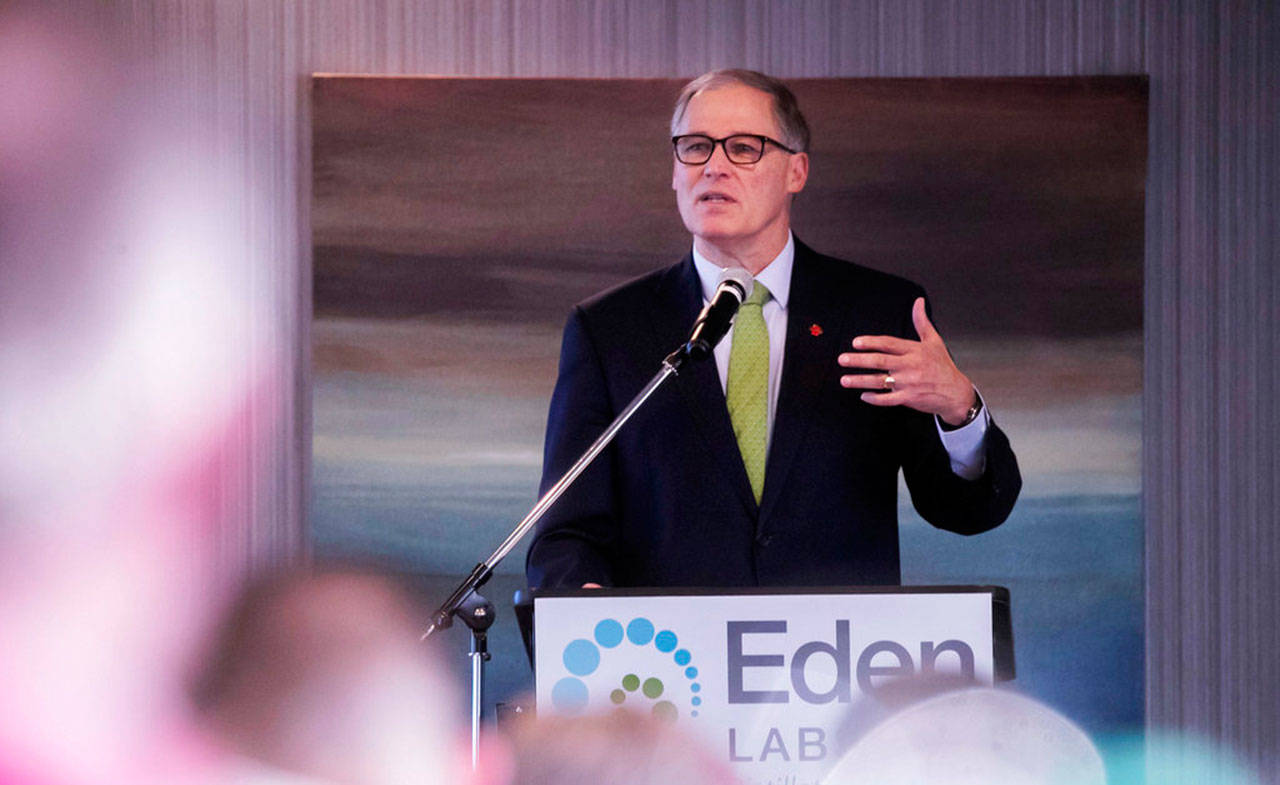By The Herald Editorial Board
It’s a move that makes sense out of simple fairness: If possession of marijuana — meant only for one’s own use and not for sale — is now legal, why keep past convictions for that misdemeanor prior to its legalization on the record.
For those with a misdemeanor conviction for marijuana possession that occurred before the state’s voters legalized recreational cannabis in 2012, those convictions have remained on their records, publicly available, where they can be used to deny employment, housing, a home mortgage or federal student loan financing, among other hardships.
For example, those applying for student loans and other aid through the Free Application for Federal Student Aid process are asked whether they have been convicted of a drug offense while receiving federal student aid. Eligibility can be suspended if the answer is yes, and restoring eligibility requires having the conviction reversed or set aside or passing two unannounced drug tests.
On Friday, speaking at a conference for the legal marijuana industry, Gov. Jay Inslee announced a step to restore fairness for an estimated 3,500 in the state. That 3,500 represents a fraction of all marijuana convictions in the state issued prior to the passage of Initiative 502, but it’s a start and establishes a relatively simple process for those who qualify.
Anyone with a sole misdemeanor conviction for possession in the state can apply online to have the Washington State Patrol erase it from the record. The move by Inslee basically fast-tracks a process that typically involves a formal request — involving lawyers, of course — before the state’s Clemency and Pardons Board. That process will remain as the course of action for those with more than one conviction on their record.
The clemency offer is narrowly focused. Along with being open to those with only one possession misdemeanor, the conviction had to occur between Jan. 1, 1998 and Dec. 5, 2012; it’s open only to those with adult convictions; and it doesn’t cover convictions under local ordinances, although Seattle, for example, already has moved to clear the records of more than 500 convicted between 1996 and 2010 when the city attorney’s office ended prosecution for possession.
The narrow focus is necessary, however, to keep the process simple, while preserving the option of review by the clemency board for those with more than one conviction.
Legislation proposed in 2017, but which did not advance past a hearing, would have made more eligible for clemency by allowing sentencing courts the discretion to vacate convictions. And Inslee on Friday endorsed such legislation.
The move leaves Inslee open to claims that he’s attempting to use this and his climate change efforts to burnish his record in advance of a potential run as a Democrat for the presidency in 2020. Yet, just about any public pronouncement is likely to be viewed through that campaign lens, as it for anyone seen as interested in running.
And Inslee already has provided some fodder for opposition advertising from his interview last April on HBO’s “Real Time with Bill Maher,” where he boasted about Washington state growing the “best weed in the United States.”
Regardless of the political messages, that doesn’t make Inslee’s clemency move a bad idea.
The offer to clear the records for a few thousand state residents continues a common-sense approach to cannabis and criminal justice.
The Herald’s Noah Haglund, in a story Saturday about the governor’s cannabis clemency, noted that in the eyes of prosecutors marijuana legalization has allowed them to focus on crimes with harsher effects on the community.
“Since the passage of (Initiative) 502, we’ve been able to shift our resources to prosecuting cases that have a bigger impact on our community, such as violent and sexual assault crimes, DUIs and crimes of domestic violence,” Prosecuting Attorney Adam Cornell told The Herald. “Those are cases that are more important to creating a safe and livable Snohomish County.”
For at least 3,500 in the state, there is simply no reason to keep their possession convictions on the record and every reason to allow them to move on with their lives without a blot on the record.
Talk to us
> Give us your news tips.
> Send us a letter to the editor.
> More Herald contact information.

























